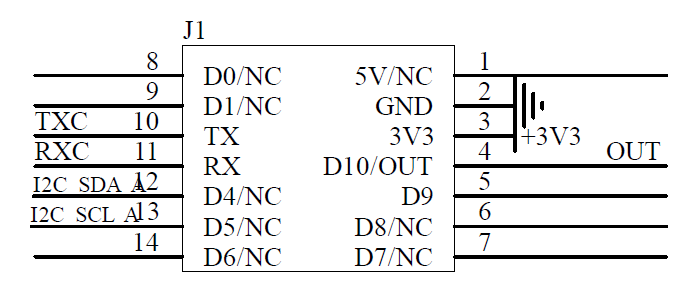24GHz mmWave Sensor for XIAO: Difference between revisions
From Wildsong
Jump to navigationJump to search
Brian Wilson (talk | contribs) mNo edit summary |
Brian Wilson (talk | contribs) |
||
| (3 intermediate revisions by the same user not shown) | |||
| Line 7: | Line 7: | ||
== Pinouts == | == Pinouts == | ||
[[File:xiao_24ghz_pinout.png]] | |||
== Software == | == Software == | ||
Seeed provides a program that can run on Windows and talk over a USB to serial adapter to program and test this board. | Seeed provides a program "HLK Radar" that can run on Windows and talk over a USB to serial adapter to program and test this board. | ||
== Can it function on Bluetooth without another connection? == | == Can it function on Bluetooth without another connection? == | ||
The board has its own Bluetooth chip on it, too. | The board has its own Bluetooth chip on it, too. It looks like it does work that way, that you can enable Bluetooth and have a connection only over BT. | ||
I'm not really interested in doing that. | |||
[[Category: Electronics]] | [[Category: Electronics]] | ||
Latest revision as of 03:53, 24 May 2024
Seeed Studio page is here: 24Ghz mmWave for Xiao
This is a tiny board in the Seeed Studio Xiao form factor with a radar motion sensor on it.
It came with two female header strips, not soldered on. I can solder those on, put pins on the Xiao ESP32C6 and stack them together. First I am going to look at pinouts though...
Pinouts
Software
Seeed provides a program "HLK Radar" that can run on Windows and talk over a USB to serial adapter to program and test this board.
Can it function on Bluetooth without another connection?
The board has its own Bluetooth chip on it, too. It looks like it does work that way, that you can enable Bluetooth and have a connection only over BT.
I'm not really interested in doing that.
